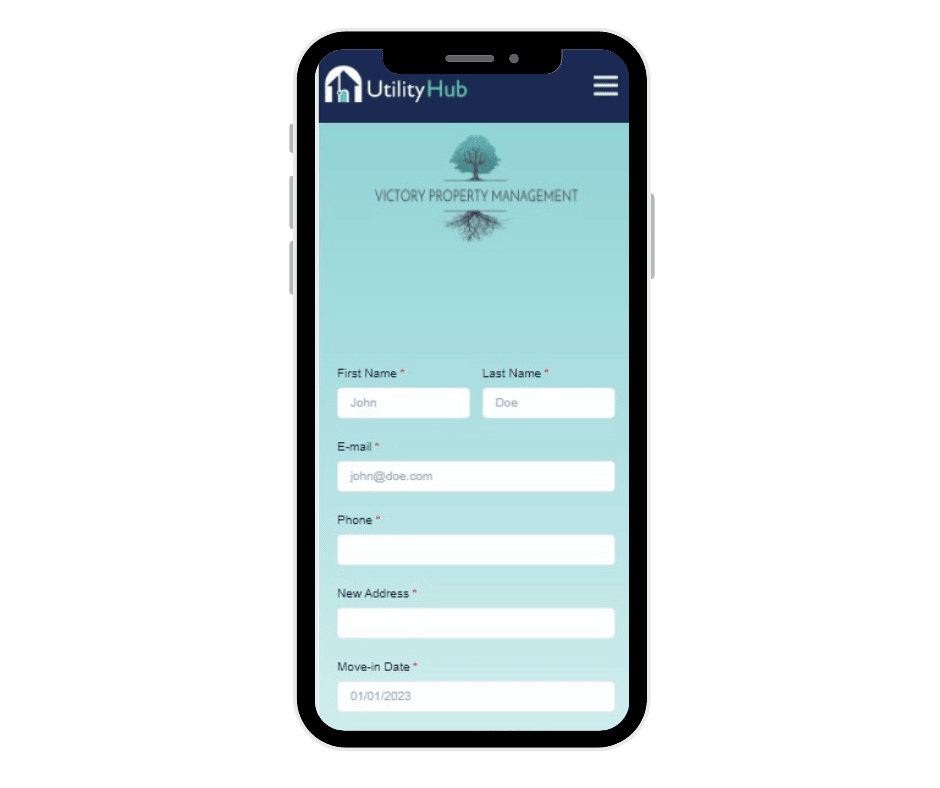Are you considering ending your lease before its expiration date? Breaking a lease can be a complex and risky process, but sometimes circumstances arise that necessitate an early termination. Whether you’re looking to downsize, relocate for a job, or face financial difficulties, it’s essential to understand your rights and obligations as a resident. In this guide, we’ll walk you through the steps of how to end your lease early, discuss legal protections, and provide valuable insights to help you make an informed decision.
Understanding Lease Termination
A lease is a legally binding contract between a resident and a landlord, outlining the terms and conditions of the rental agreement. Breaking a lease means terminating the contract before the agreed-upon end date, which can have financial and legal consequences. However, there are situations where early lease termination is allowed and there may be clauses within your lease that outline the process of ending your lease early.
Before proceeding with lease termination, it’s crucial to review your lease agreement thoroughly. Look for an early termination clause that outlines the conditions and penalties for ending the lease early. This clause may require you to pay a penalty fee or forfeit your security deposit. Some leases may offer options for early termination without penalty, such as finding a replacement resident or giving advance notice.
Landlord/Tenant Handbook
Both landlords and residents have certain obligations to abide by. Check out our landlord/resident handbook and stay compliant!
Tips for Ending Your Lease Early
If you’ve decided that ending your lease early is the best course of action, here are some tips to navigate the process smoothly:
1. Review Your Lease Agreement
Start by carefully reviewing your lease agreement. Pay close attention to the early termination clause, which will provide guidance on the steps you need to take and any associated fees. Understanding your rights and obligations under the lease is essential before proceeding with lease termination.
2. Communicate with Your Landlord
Open communication with your landlord is key. Schedule a meeting or have a conversation to discuss your situation and explain your reasons for wanting to end the lease early. Building a positive relationship and demonstrating a willingness to cooperate may increase the chances of reaching a mutually beneficial agreement. Pro tip: Always follow up any verbal conversation with an email so a paper trail is trackable.
3. Find a Replacement Resident
One way to facilitate early lease termination is by finding a replacement resident. If your lease allows for subletting or a lease take over, you can search for someone willing to take over your lease obligations. Ensure that the potential resident meets the landlord’s requirements and passes the necessary background and credit checks. Again, keep your landlord in the know. It’s likely that whomever takes over your lease will need pass credit and background checks required by your landlord.
4. Negotiate with Your Landlord
If finding a replacement resident isn’t feasible or allowed under your lease, consider negotiating with your landlord. Propose potential solutions, such as paying a fee or offering to assist in finding a new resident. Be prepared to compromise and find a resolution that works for both parties.
5. Understand Your Legal Protections
In certain circumstances, specific legal protections may allow for early lease termination without penalty. Familiarize yourself with these protections, which may include:
- Servicemembers Civil Relief Act (SCRA): Active-duty military personnel may be protected under the SCRA, allowing them to terminate a lease due to deployment or permanent change of station (PCS) orders.
- Landlord Harassment: If your landlord engages in harassment or violates the terms of the lease, you may have grounds for early termination. Examples of landlord harassment include entering the premises without notice or cutting off access to amenities without justification.
- Domestic Violence: Many states have laws in place to protect victims of domestic violence. If you are experiencing domestic violence, you may be able to break your lease by providing proper documentation, such as a police report or restraining order.
- Uninhabitable Conditions: If your rental unit becomes uninhabitable due to significant maintenance issues or code violations, you may be entitled to break your lease. This is known as “constructive eviction,” where the landlord’s failure to maintain a habitable dwelling releases the resident from the lease obligations.
- Natural Disasters: In the event of a natural disaster that renders the rental unit uninhabitable, you may have the right to terminate your lease without penalty. Consult local laws and regulations for specific provisions related to natural disasters.
Understanding your legal protections is crucial when considering early lease termination. Research the laws in your jurisdiction or consult with a legal professional to ensure you are well-informed.
6. Document Everything
Throughout the process of lease termination, it’s essential to document all communication and agreements with your landlord. Keep copies of written notices, emails, and any other correspondence related to the termination. This documentation will serve as evidence should any disputes arise in the future.
7. Consider Financial Implications
Ending your lease early may have financial implications beyond any penalty fees specified in the lease agreement. Be prepared to cover the costs of a new rental, including security deposits, application fees, and potential overlap in rent payments. Carefully assess your financial situation and ensure you can comfortably afford the expenses associated with lease termination.
8. Seek Legal Advice if Needed
If you encounter complex legal issues or require further guidance throughout the lease termination process, it may be wise to consult with a legal professional specializing in landlord-resident law. They can provide personalized advice based on your specific circumstances and ensure that your rights are protected.
9. Provide Proper Notice
If you have followed all necessary steps and decided to proceed with lease termination, make sure to provide proper notice to your landlord. Adhere to the notice requirements outlined in your lease agreement or local laws. This notice should be in writing and clearly state your intention to terminate the lease early.
10. Prepare for Potential Consequences
Ending your lease early may result in certain consequences, such as the loss of your security deposit, potential legal action, or difficulties in securing future rental agreements. Consider these potential consequences carefully before making a final decision. Assess your options, weigh the pros and cons, and make an informed choice that aligns with your specific circumstances.
Move Smarter.
Renters and Homeowners, turn on or transfer your utilities without the headache.

Understanding the Importance of Lease Termination Letters
Firstly, when terminating a lease, it is crucial to provide written notice to your landlord. A lease termination letter is a formal document that notifies your landlord of your intention to end the lease early. It serves as proof that you have fulfilled your obligation to provide notice and can protect you from potential disputes in the future.
In summary, the lease termination letter should include essential information, such as:
- Your name and contact information
- The landlord’s name and contact information
- The address of the rental property
- The date of the lease termination
- A clear statement expressing your intent to terminate the lease early
- The reason for lease termination, if applicable
- Any relevant supporting documentation, such as military orders or police reports
- A request for an inspection of the rental unit, if necessary
- Instructions for the return of the security deposit, if applicable
Lastly,ensure that you keep a copy of the lease termination letter for your records and send it via certified mail or another trackable method to ensure proper delivery.
Conclusion
Ending a lease early can be a complex process with potential legal and financial implications. Before deciding to terminate your lease, thoroughly review your lease agreement, understand your rights and obligations, and consider all available options. Open communication with your landlord, finding a replacement resident, and understanding your legal protections can help facilitate a smoother lease termination process. If needed, seek legal advice to ensure that you are making informed decisions aligned with your specific circumstances. Remember to provide written notice to your landlord through a lease termination letter, documenting the process for future reference. Undoubtedly following these steps and being proactive, you can navigate the process of ending your lease early with greater confidence and minimize potential risks.
Frequently Asked Questions
Q: Can I end my lease without paying early termination fees?
A: The ability to end your lease without paying early termination fees will depend on the terms outlined in your lease agreement. Additionally, some leases may allow for early termination without penalty if certain conditions are met, such as finding a replacement resident. Review your lease agreement and communicate with your landlord to explore potential options. Early lease termination fee’s can vary from landlord to landlord and can range from a few hundred dollars to several months rent.
Q: What happens if I break my lease and have no one to take it over?
A: If you break your lease without finding a replacement resident, your landlord may hold you responsible for the remaining rent payments until the lease term expires or until a new resident is found. Failure to fulfill these financial obligations may result in legal action or negative effects on your credit score. Check with your landlord to see if there is an option for them to advertise the property as well to expedite finding a new resident.
Q: Is breaking a lease problematic?
A: Breaking a lease can be problematic if not done correctly. It is important to follow the terms outlined in your lease agreement, communicate with your landlord, and fulfill any financial obligations associated with early termination. By taking proactive steps and seeking legal advice if needed, you can navigate the process effectively.
Q: What should I do if my landlord violates the lease agreement?
A: If your landlord violates the terms of the lease agreement, document the violations and communicate with your landlord in writing, requesting a resolution. If the violations persist and make the rental unit uninhabitable, you may have grounds for early lease termination. Consult local laws and regulations or seek legal advice to understand your options.












